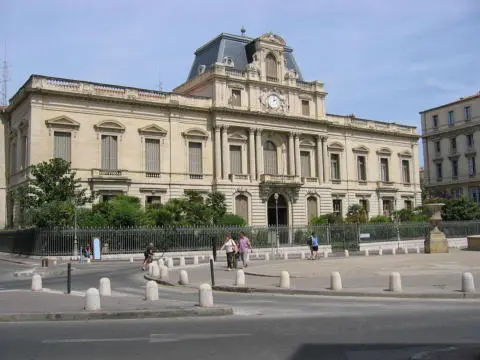You’re a non-EU citizen and plan on being in France for more than 90 days? Or you’re an EU citizen and want to apply for a stay permit, exchange your driver’s license or apply for healthcare? Then you will more than likely come into contact with the bureaucracy of the consulat, préfecture, mairie, or another representative of the French administration.
Dealing with French bureaucracy
When it comes to dealing with French bureaucracy, patience is more than a virtue, it’s a prerequisite. So, keep in mind that France has always been known for being a bit complicated, no need to take it personally when a civil servant asks you for an additional copy of a document you’ve already handed in three times.
The key is to be well-prepared and equipped with more than enough proof of who you are, where you come from and what you’re doing in France.
Here is our French Bureaucracy Survival Kit – the main items to have on file at any given moment to successfully jump through the inevitable and infamous administrative hoops.
Proof of identity
As a Non-EU citizen, you might be under the impression that you’re constantly having to prove your identity. This is kind of true.
Be sure to have a recent copy of your long form birth certificate, which includes parents’ names and birth dates.
Marriage certificates and divorce decrees may be required to prove family ties and name changes.
And your passport must be valid for at least 3 months after the scheduled end of your stay.
Proof of address in France
Electric bills (EDF) are the most widely accepted proof of address, however other utilities such a landline phone bills can do the trick as well. Make sure the document is less than 3 months old!
If the utilities are not in your name or you’re being housed free of charge, just have the property owner write you an “attestation d’hébergement”, which you can hand in along with his/her ID and utilities bill.
Proof of financial situation
Last 3 months’ bank statements, preferably from a French bank.
RIB (relevé d’identité bancaire) – French bank account details.
Any other proof of income sources such as pension statements, share reports, savings account, etc. also come in handy as you prove that you have the financial means to live in France without becoming a burden on the state.
Proof of immigration status
Long Stay Visa (visa long séjour, VLS-TS), which is stuck in your passport by the French consulate before you leave your home country.
OFII stamp – another sticker which validates the above visa, issued by the immigration office in France.
A few additional hints
- All documents, not originally in French, need to be translated by a court approved translator and cost upwards of €50 per page
- Keep copies of every document and application
- Never ignore official mail (ie: anything from the Préfecture, OFII, CPAM, etc. )
- Originals need to be shown at official appointments (plus several copies)
- Consistent name and address on all documents, otherwise document any discrepancies
- Keep a photocopy of your passport and permit (or récépissé) on you at all times
- Seek support when needed – when in doubt, ask an expert for help!
Renestance accompanies clients from around the world as they tackle various administrative tasks. The Préfecture is literally our second home!
If you’re in need of guidance or a helping hand, just give us a ring for more information on our specific Administrative Assistance and ad hoc services.
Jennifer was Renestance's Activity & Excursions Coordinator between 2015 and 2020, a bilingual American from Vermont who's been loving her life in France since 1998. She was passionate about sharing her knowledge and allowing you to discover all of the scenic, cultural and culinary wealth of the Languedoc-Roussillon region.
All articles by: Jennifer Rowell-Gastard





Mary Wolcott
on 2018-08-03 at 17:23Greetings,
I will be in Vasles France for a year starting January 2019. I have my visa long-term, but will need a car. I have the IDP for one year. My USA driver’s license from VT expires this November.
It would be nice if I could lease a car. What are my chances of being able to do so?
Thanks for considering my question.
Bonjour Mary!
Thanks for your comment – it’s always a pleasure to hear from a fellow Vermonter!
According to the DMV, an IDP does NOT REPLACE your U.S.-issued driver’s license; rather, it acts as a language translation of your driver’s license. So it must be used along with a valid driver’s license. So, you should definitely renew your VT license before you leave for France.
Should you decide to remain in France for more than a year (I was planning on staying for 3 months…20 years ago!), then you’ll need to think about getting a French license, as VT licenses are unfortunately non-exchangeable in France.
If you’d like more guidance on that, don’t hesitate to contact me directly at jen@renestance.com
All the best,
Jen
ps: to rent a car in France, you need to show a valid license (IDP + your state license) as well as proof of address and ID. For long term leases, you’ll also need to show proof of your financial situation (tax statement, payslips, bank details, etc.)